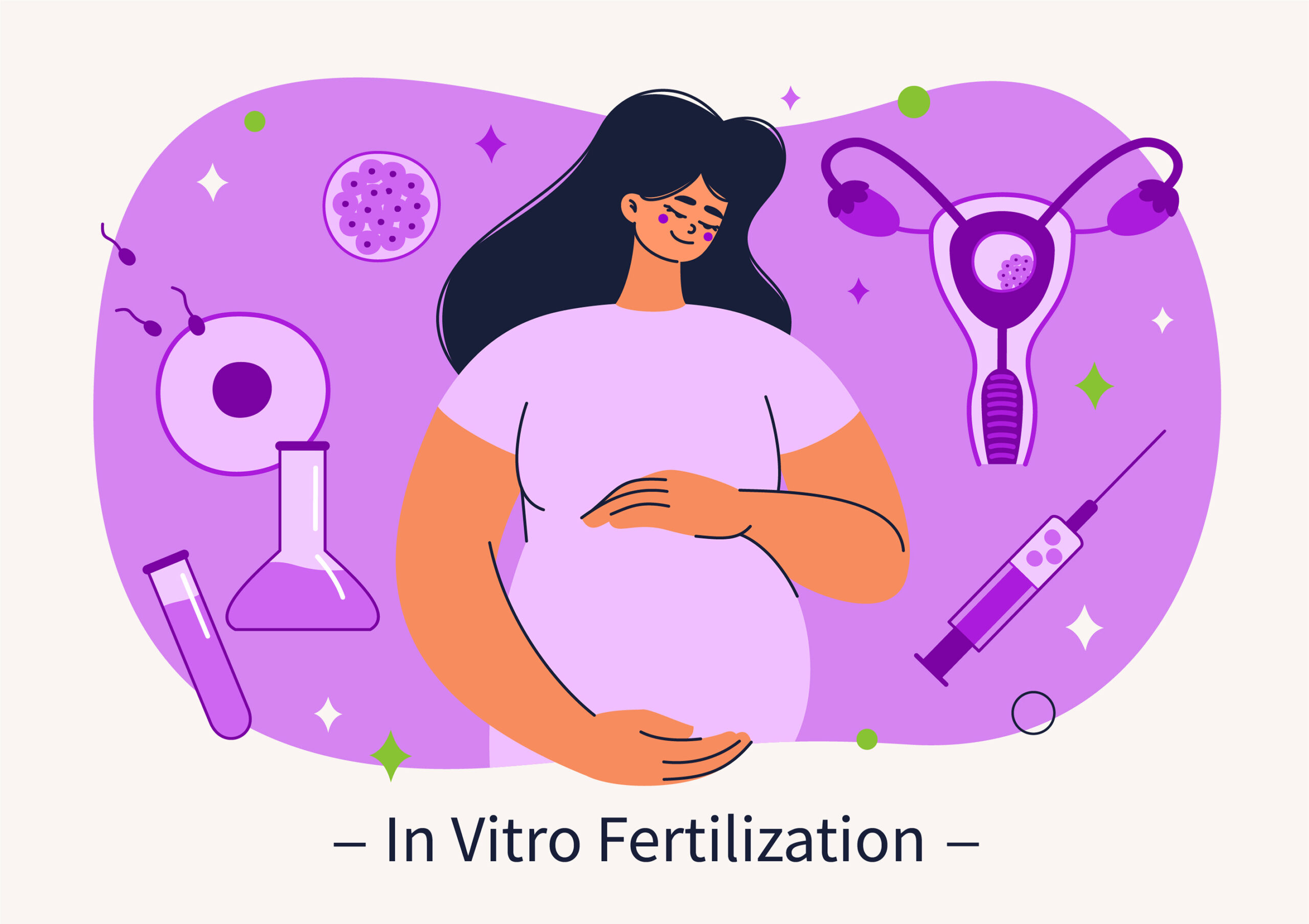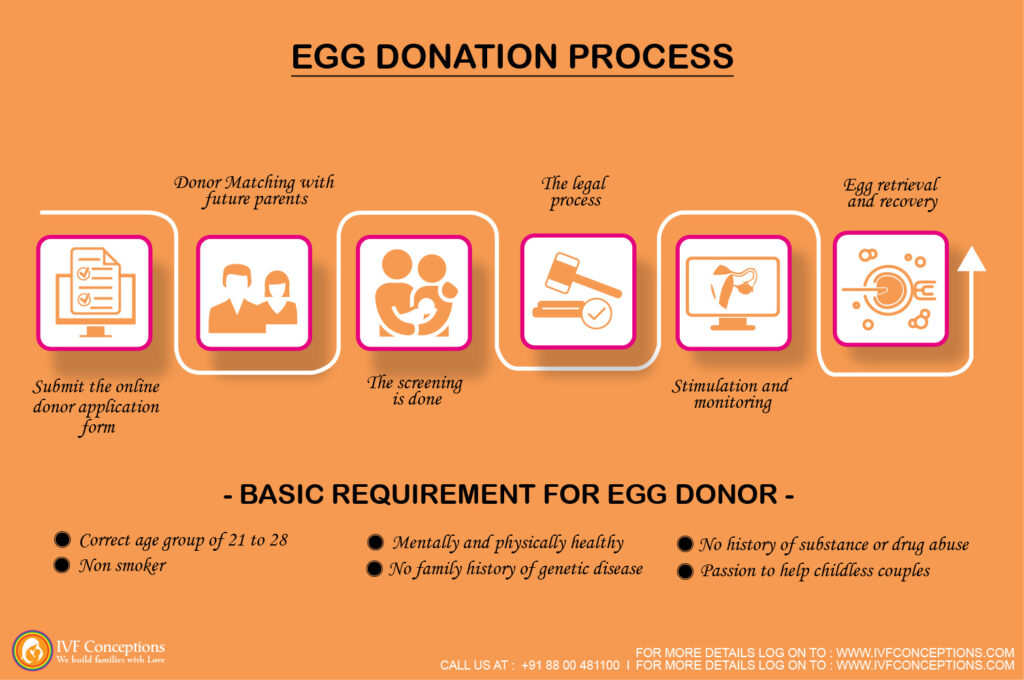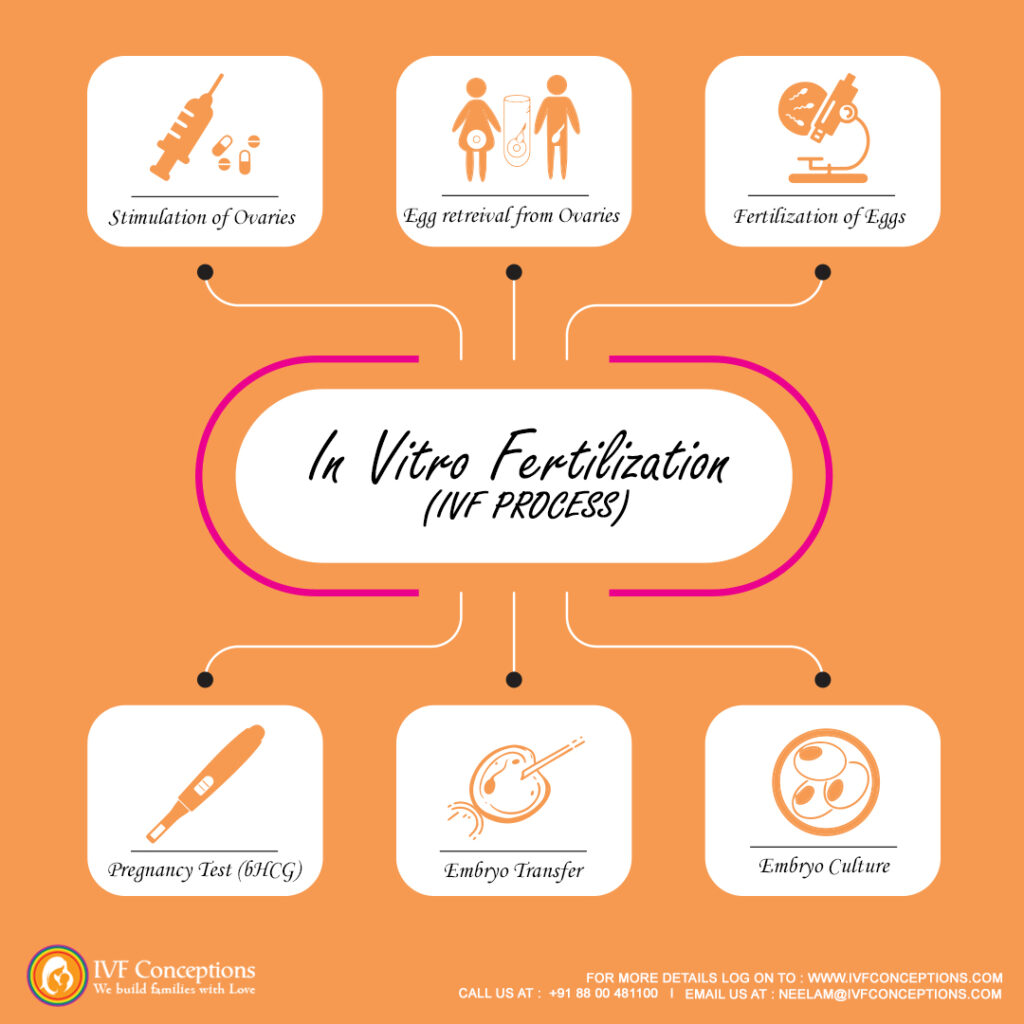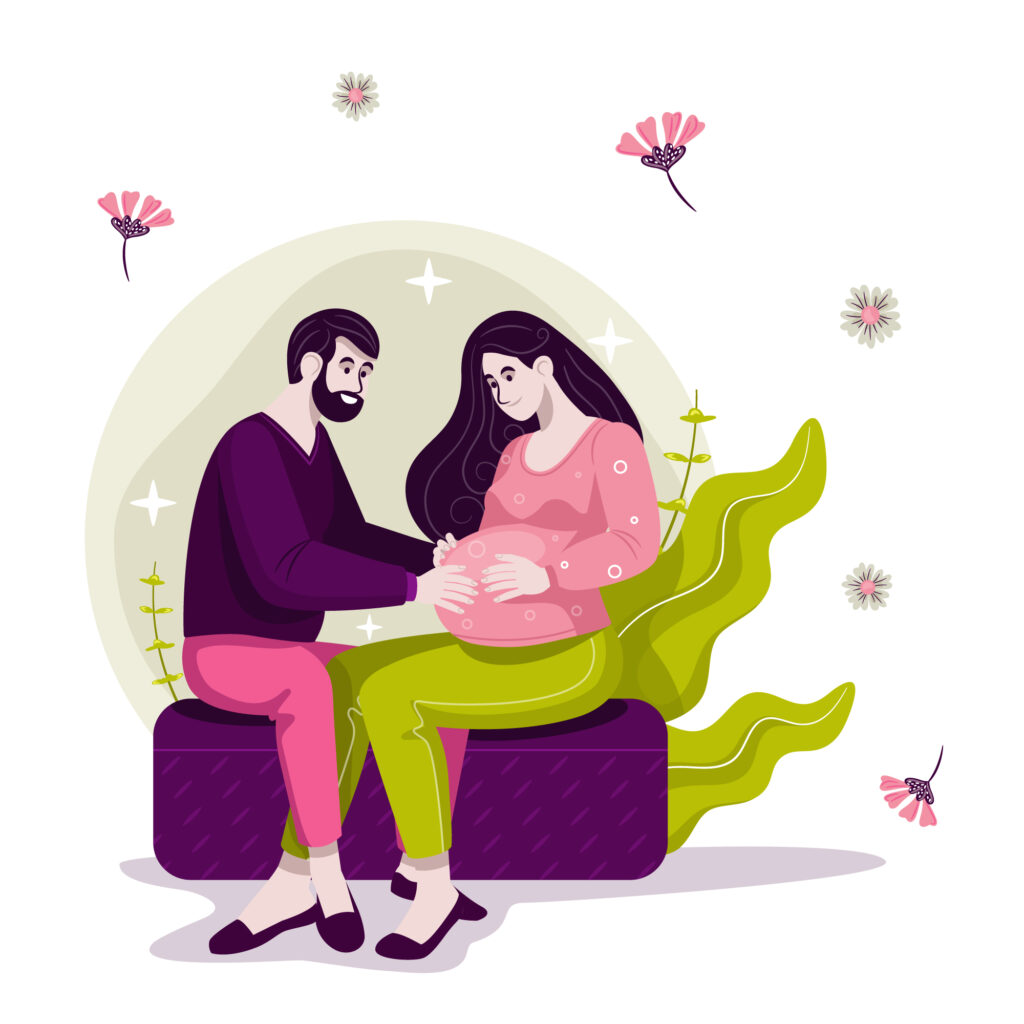How To Choose Between IVF and IUI: A Comprehensive Guide

How To Choose Between IVF and IUI: A Comprehensive Guide
How To Choose Between IVF and IUI in 2025 depends on various factors, including your fertility challenges, medical history, and treatment goals. Both IVF (In Vitro Fertilization) and IUI (Intrauterine Insemination) are advanced assisted reproductive techniques (ART) designed to help couples struggling with infertility. However, the right choice varies based on individual circumstances, such as age, reproductive health, and underlying conditions. Understanding the differences between IVF vs. IUI success rates and their suitability for your specific needs can help you make an informed decision on the best path to parenthood.
- Book an online appointment: Get a free online consultation.
- Call\W:+91-8800481100 Email:neelam@ivfconceptions.com
Most fertility clinics offer in vitro insemination (IVF) as well as intrauterine insemination (IUI). Some people are more familiar with one phrase than the other, frequently without understanding either treatment’s distinction or nature. It’s crucial to discuss your unique situation with your reproductive specialists, but you should also understand the distinctions between IUI and IVF. Let’s dive into the process of how to choose between IVF and IUI.
More Resources to Read:
Infertility Treatment and Surrogacy Process
9 Factors To Improve IVF Pregnancy Rate
International Surrogacy Options Worldwide
Surrogacy Guide for Surrogate Mothers
IUI-Intra Uterine Insemination
Artificial insemination, sometimes referred to as intrauterine insemination (IUI), is a straightforward clinic operation. The physician inserts sperm into the uterus after it has been previously extracted and treated in the laboratory. The lab “washes” the sperm before implantation by concentrating and eliminating seminal fluid.
IUI can be carried out during a woman’s natural ovulation or in conjunction with fertility treatments to improve ovulation function. When a woman is ovulating, this can be ascertained with over-the-counter ovulation predictor kits.
The sperm travels through the fallopian tubes faster because it is positioned higher within the uterine cavity, avoiding the cervix. This raises the quantity of sperm in the running to meet the egg.
IVF-In Vitro Fertilization
An assisted reproductive technology (ART) method known as in vitro fertilization (IVF) involves combining a woman’s eggs and a man’s sperm outside of her body in a laboratory.
A female takes fertility medicine before fertilization to help with effective egg retrieval by stimulating the ovaries. On the same day as the egg retrieval, insemination takes place while the woman is sedated.
Following fertilization, the embryo is closely watched to decide when it is time to transfer it into the uterus.
Additional guide for infertility treatments:
Moving From Infertility To Surrogacy: 7 Questions To Ask
IVF With Egg Donor Success Rates
10 Ways Of Dealing With Infertility
What is Infertility Counseling for Surrogacy?
What is Egg Donation? How the Process Works

Key Differences Between IUI And IVF- How To Choose Between IVF and IUI
| Factors | IVF | IUI |
| Full Form | In Vitro Fertilization | Intrauterine Insemination |
| Process | Ovary stimulation, egg retrieval, fertilization, and embryo transfer | Sperm preparation and insemination |
| Success Rate | 55-75% | 10-20% |
| Success Rate Over 35 | 50-60% | 5-15% |
| Success Rate Over 40 | 40-50% | 2-5% |
| Treatment Indications | Blocked fallopian tubes, severe male infertility, previous IUI failures | Mild male infertility, unexplained infertility |
| Additional Techniques | ICSI can be added for severe male infertility | N/A |
| cost | $12,000- $18,000 | $3,500-$5,000 per cycle |
IUI Vs IVF Treatment Process
An egg must be fertilized and then successfully implanted in the uterine lining for IUI or IVF to be effective. Lastly, for the embryo to stay implanted and develop further, it needs the right genetic makeup.
IVF and IUI share a few similarities. The majority deal with getting ready for therapy and embryo implantation in the uterus.
Both IUI and IVF treatments include fertility medicines to boost egg production before fertilization, along with techniques to isolate the best sperm from the supplied sperm samples to bring the sperm closer to the eggs.
When to go for IUI
Couples can benefit from IUI when:
- An ovulation-inducing fertility medicine has not helped a lady who suffers from irregular ovulation become pregnant.
- The purpose of fertility medication is to increase the average number of eggs released during ovulation.
- Minor anomalies have been identified in the sperm analysis (such as concentration, motility, and sperm morphology or forms).
- Ejaculating is tough for the male partner.
- The man has frozen sperm that was taken before surgery or treatment for conditions such as testicular cancer.
- Using a donor’s sperm to become pregnant
For infertility that cannot be explained, mild endometriosis, or mild male factor infertility, IUI is frequently recommended as the initial course of treatment.
When to go for IVF
It is often advised that couples who have been trying for a year without success and who have one or more reproductive issues, such as:
- blocked fallopian tubes as a result of tubal ligation or scarring
- Absence of ovulation
- poor motility or sperm count in men
- sophisticated endometriosis
- A male spouse who has already had a vasectomy
- reduced egg viability and a decreased egg supply
- IVF surrogacy and egg donation
When three unsuccessful IUI cycles have failed to conceive, couples are typically advised to pursue IVF. The Society for Assisted Reproductive Technology reports that the success rate of in vitro fertilization (IVF) in the United States for women of all ages is approximately 30%; however, when women under the age of 35 are included, the IVF success rate.

IUI Vs IVF Cost
Because IUI is far less expensive than IVF, people frequently attempt it first. The average cost of an IUI cycle is $3,500 to $5,000, depending on the location and policies of the fertility clinic, insurance coverage, the kind of medicine used, lab work, and necessary follow-up.
However, couples may need to undergo several cycles before achieving conception because IUI might be significantly less effective than IVF. This can make the total cost more in line with what IVF would cost.
In the US, the typical cost of IVF is between $12,000 and $18,000 or more. This range takes into account several relevant factors, including:
- coverage for insurance
- transferring fresh embryos versus freezing them
- choosing to pursue other therapies like PGT-A or ICSI
Success Rate Of IUI and IVF
Note that having a child does not necessarily follow infertility treatments. It does, however, raise your chances of becoming pregnant.
Furthermore, although IVF appears to have a better success rate than IUI, the reality is more nuanced. It’s not always appropriate to rely on raw numbers and percentages because your success rate is dependent on the peculiarities of your body.
Even though an IVF cycle costs more than an IUI cycle, some patients may find that it is worth it because of the far greater success rates of IVF.
The likelihood of success for each patient is contingent upon their specific disease, age, and, in the case of heterosexual couples, the medical histories of both the patient and their partner. However, we may compare by looking at generic statistics.
SUCCESS RATES OF IUI VS. IVF
| Female patient’s age | IUI success rate | IVF success rate |
| Under 35 | 13% | 54% |
| 35-37 | 10% | 40% |
| 38-40 | 7% | 26% |
| Over 40 | 4% | 8% |

What Qualifies You for IUI as an Alternative to IVF, and Vice Versa?
Artificial insemination, or IUI, is the more popular fertility procedure, as was previously mentioned. This is because it is less invasive. After all, internal fertilization occurs rather than in a lab, aside from the fact that it is frequently the first treatment many people take. Because of this, to do artificial insemination, a male partner’s processed ejaculate must have five to ten motile sperm available, functioning ovaries, viable eggs, and fallopian tubes.
You may think about IVF if you or your partner don’t fit the standards for IUI. IVF is used to treat a variety of infertility conditions, such as endometriosis, uterine abnormalities, tubal disorders, poor sperm count and/or motility, and others. For people who want to employ a surrogate or donate eggs, IVF may also be the best option.
INTRAUTERINE INSEMINATION Pros and Cons
| PROS | CONS |
| less encroaching than IVF | requires motile sperm, ovulation, and clean fallopian tubes. |
| comparatively cheap in comparison to IVF | Compared to IVF, the success rate is lower, ranging from 10% to 15% per cycle, depending on the age and reason for infertility. |
| greater success rate when compared to routine sexual activity | heightened likelihood of multiple pregnancies |
| Short outpatient process (five to ten minutes) | Mood swings, hot flashes, breast tenderness, nausea, bloating, headaches, swelling, painful and enlarged ovaries, pelvic discomfort, and ovarian cysts are among the potential adverse effects of fertility medicines. |
| Ineffective in treating underlying infertility conditions such as male factor infertility or endometriosis |
INVITRO- FERTILIZATION Pros and Cons
| PROS | CONS |
| treats diseases of the reproductive system, such as obstructed fallopian tubes | Cost: $12,000 to $14,000 each cycle on average in the United States |
| uses intracytoplasmic sperm injection to get over male-factor infertility (ICSI) | More time-consuming and intrusive |
| Reduced chance of multiple births (triplets, twins) while using single embryo transfer (SET) | need numerous medical appointments in order to track the development of eggs and hormone levels. |
| genomic testing of embryos prevents single-gene diseases | Potential adverse effects of fertility medications |
| The best likelihood of getting pregnant and having a healthy baby | emotionally and physically exhausting |
| enables proactive genetic testing of the embryo to increase the likelihood of conception | |
| provides future family planning by preserving extra embryos. | |
| offers donor sperm, eggs, and other family-building choices to the LGBTQ community. |
Additional guide for intended parents:
Best surrogacy agency in India
Best surrogacy agency in Mexico
Best surrogacy agency in Colombia
Best surrogacy agency in Georgia
Best surrogacy agency in the USA
Best surrogacy agency in Ukraine
Best surrogacy agency in Armenia
Best surrogacy agency in Argentina
Conclusion for How To Choose Between IVF and IUI
IVF and IUI are two frequently used reproductive therapies that assist individuals and couples in becoming pregnant. Making knowledgeable judgments on reproductive procedures can be aided by having a thorough understanding of the benefits, drawbacks, and considerations associated with each.
If you’d like to learn more about IVF, Egg Donation, or surrogacy services globally, check out the rest of our website at Complete Surrogacy Agency. We offer legally secure and affordable surrogacy consulting services for FREE.
For more resources on IVF and Surrogacy, browse our other web page- IVF Conceptions.
For more resources on IVF and Surrogacy, browse our other web page- Georgia Surrogacy Agency.
Complete Surrogacy: Your Trusted Partner in International Surrogacy
At Complete Surrogacy, we have over 15 years of experience in international surrogacy, guiding 4,000+ intended parents worldwide. We provide safe, ethical, and affordable surrogacy solutions for single parents, LGBTQ+ couples, and heterosexual couples.
As members of EFS and ESHRE, we adhere to the highest ethical and professional standards. Our expert team is committed to providing accurate, compassionate, and transparent guidance, ensuring a legally secure and smooth journey to parenthood.
Let us help you build your family with trust, care, and integrity.
Get in touch for one FREE Surrogacy Consultancy!
Our team includes experts from diverse backgrounds with leading reproductive attorneys, professionally trained top fertility doctors, former surrogacy case managers, experienced and kind surrogate mother and egg donor coordinators, mental health professionals specializing in infertility counseling, and a logistic support team to assist you in your chosen surrogacy country.
References used:

FAQs for How To Choose Between IVF and IUI
Q1. Is IUI more effective than IVF?
Ans. IUI is less successful than IVF, though, and it may take several cycles for a couple to conceive, which would almost certainly result in an overall expense that is closer to half that of IVF.
Q2. Which is costly IVF or IUI?
Ans. The monitoring, medicine, and procedure itself are all included in the cost of an IUI cycle. On the other side, in vitro fertilization (IVF), despite having better success rates, is frequently more expensive because of its intricacy.
Q3. Is IUI 100% successful?
Ans. Success rates for IUI range from 10% to 30%. When using an IUI therapy with a high success rate, several elements can help boost the odds of conception.
Q4. Can you pick the gender with IUI?
Ans. It is possible to spin or wash sperm to improve the likelihood of producing male or female offspring. PGT and IVF produce far better results for patients who want a particular gender.
Q5. Are fertility medications necessary for IUI?
Ans. To increase the chances of conception and boost egg production, fertility drugs may be utilized during IUI.

Author Bio: Neelam Chhagani is an International Surrogacy Expert with 15 years of experience in the fertility and surrogacy domain. As the founder of IVF Conceptions and Complete Surrogacy, she has guided over 4,000 intended parents worldwide on their surrogacy journey to parenthood. Recognized as a trusted authority, she specializes in holistic infertility solutions and third-party reproduction consulting.
Holding an MA in Counselling Psychology and a PGD in Mental Health, Neelam is a proud member of the European Fertility Society (EFS) and the European Society of Human Reproduction and Embryology (ESHRE). She is also a leading surrogacy blogger, providing valuable insights into ethical and practical surrogacy solutions.
Since 2010, committed to supporting ALL family types, Neelam has been passionate about helping intended parents grow their families with compassion, integrity, and a focus on secure and affordable surrogacy options Globally.
Learn more about Neelam:
https://www.ivfconceptions.com/neelam-chhagani-surrogacy-consultant/
https://www.linkedin.com/in/neelam-chhagani-92892229/














I was introduced to Neelam by a friend who worked with Neelam for surrogacy. Neelam is absolutely wonderful. I am a single male and the journey to fatherhood is not that easy. Neelam connected me to a program ideal for my circumstances. She was with me throughout the pregnancy providing advice and guidance along the way. I am so grateful I found her and am thrilled today that I have a beautiful daughter. I highly recommend Neelam to anyone who is on a journey to become a parent. Having a child has changed my world for the better. I wish others success with their own journey and recommend you connect with Neelam to find a path that is best for you.
SA (USA)